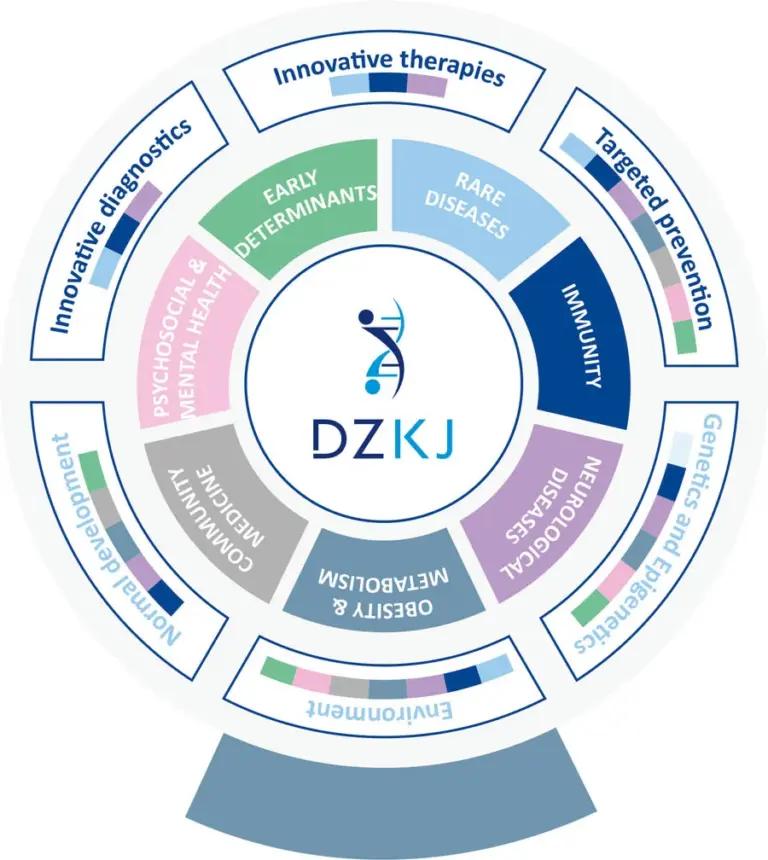Obesity, Metabolism
Healthy children and adolescents through science – for a better life
Obesity, Metabolism
Healthy children and adolescents through science – for a better life
Background
Childhood and adolescence are critical life stages for the development of obesity and its associated comorbidities and sequela. Obesity is a chronic disease whose pathophysiology is characterized by a wide range of complex factors. Based on an (epi)genetic and biological predisposition that lies beyond individual control, our environment and lifestyle (the obesogenic environment) strongly influence the onset and manifestation of obesity. Moreover, there is considerable heterogeneity in predisposition, the course and progression of obesity. It is therefore important to identify obesity subphenotypes and understand their underlying causes, as well as to determine environmental, lifestyle, and genetic risk factors in order to enable precise risk prediction and to develop targeted and effective treatment.
Key aspects of research
Using a translational approach (bench to bedside and back), clinical-epidemiological studies and mechanistic investigations are conducted to initiate the development of new therapeutic and preventive strategies for obesity in childhood and adolescence. The characterization of monogenic forms of obesity will be carried out in close collaboration with the research area “Rare Genetic Diseases”. The causes and trajectories of polygenic forms of obesity are influenced by both individual and overarching environmental factors. Therefore, these investigations will be conducted jointly with the research area “Early Determinants of Health and Disease”. Furthermore, obesity should be understood as a multisystem disease, in which immunometabolic, psychosocial, and neurobehavioral aspects play a role. These aspects will be examined in a cross-disciplinary manner together with the research areas “Immunity, Inflammation, Infection”, “CNS Development and Neurological Diseases”, and “Psychosocial Health, Mental Health”. The medical care of those affected is analyzed and improved in cooperation with the research area “Community Medicine” by forming networks within and outside the health system.

Objectives
During the set-up phase of the DZKJ, the goal is to gain insights into the interplay between genetic predisposition, environmental factors, and molecular determinants in relation to obesity risk and its therapeutic implications. In particular, the aim is to identify the genetic risk factors for childhood obesity and to characterize modifying factors of obesity subphenotypes. These objectives and content areas are further developed in close collaboration with patient representatives. The central element will be the development of a digital information, diagnostic, intervention and research platform for children and adolescents with obesity, their parents and the treatment team.
Contact Persons


